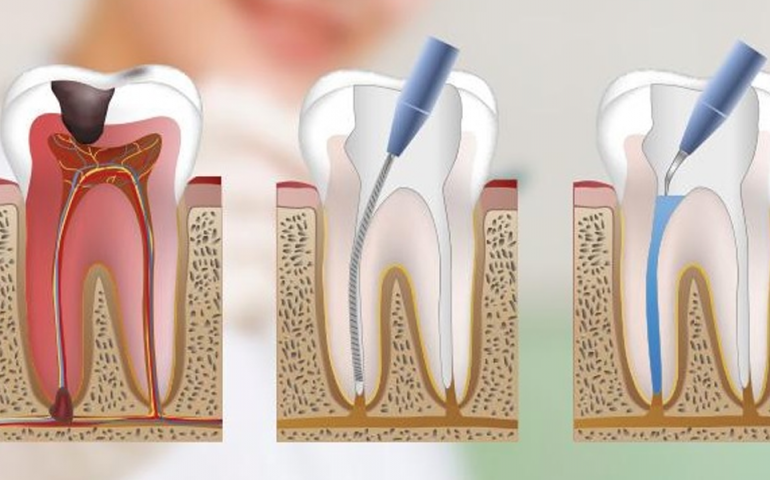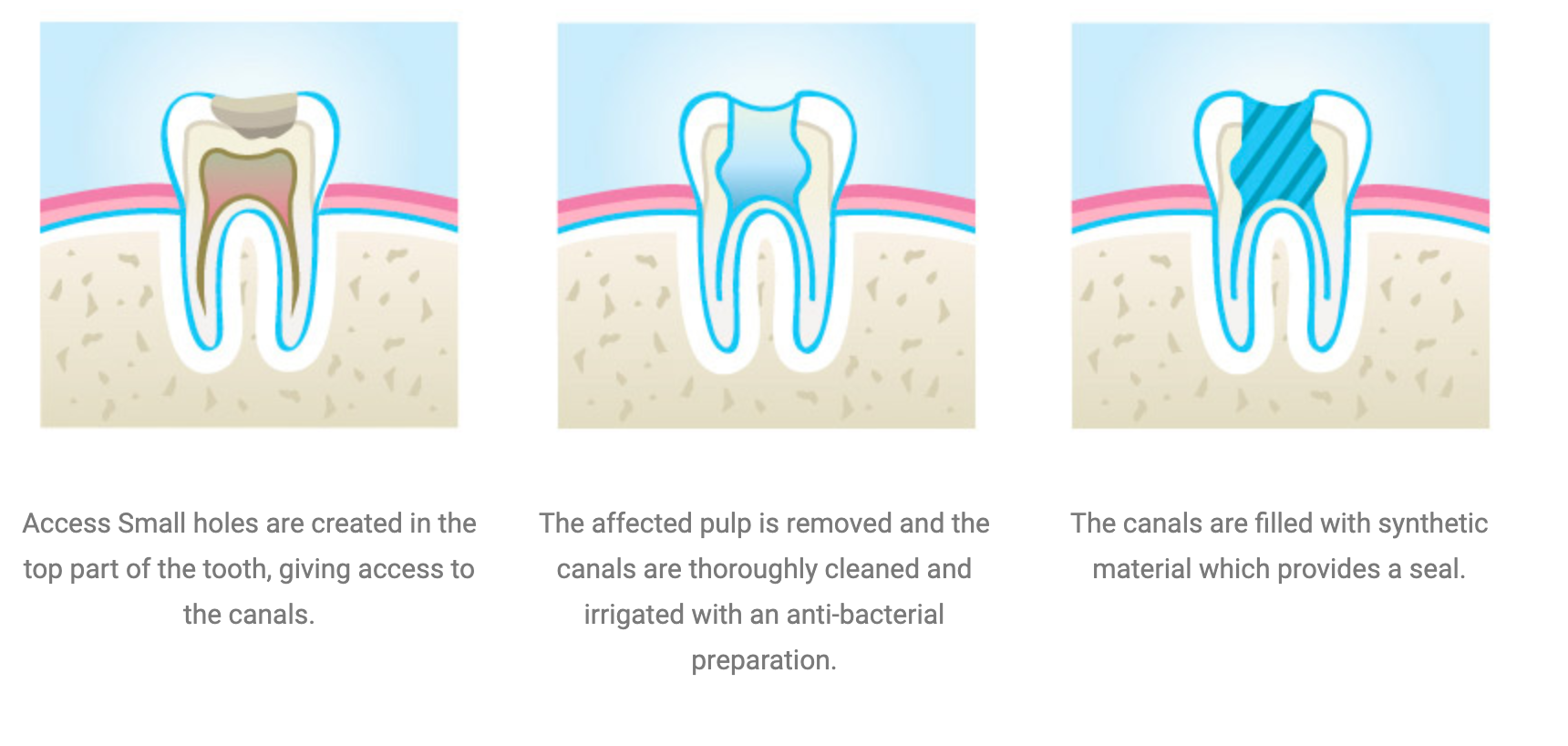Root canals
Root canal treatment is a procedure to retain a tooth, which may otherwise require extraction
The aim of RCT is to clean pulp cavity from infected tissue and debris and to seal this cavity with inert material called Gutta percha to maintain the tooth in function .
Although root canal therapy has a very high degree of clinical success, it is still a biological procedure, so it cannot be guaranteed.
A certain percentage (5-10%) of root canals fail, and they may require re-treatment, periapical surgery, or even extraction.
series of appointments will be necessary to complete the root canal therapy, as well as other appointments for restoration.. So sometimes it might be associated with
The aim of RCT is to clean pulp cavity from infected tissue and debris and to seal this cavity with inert material called Gutta percha to maintain the tooth in function .
Although root canal therapy has a very high degree of clinical success, it is still a biological procedure, so it cannot be guaranteed.
A certain percentage (5-10%) of root canals fail, and they may require re-treatment, periapical surgery, or even extraction.
series of appointments will be necessary to complete the root canal therapy, as well as other appointments for restoration.. So sometimes it might be associated with

- Temporary symptoms throughout the treatment. Those symptoms may include:
- Swelling
- Pain
- Infection
- Drainage
- Fever
- Numbness
- During instrumentation of the tooth an instrument may separate and lodge permanently in the tooth or an instrument may perforate the root wall. Although this rarely occurs, such an occurrence could cause the failure of the root canal and the loss of the tooth.
- When making access (opening) through an existing crown or placing a rubber dam clamp, the damage could occur and a new crown would be necessary after endodontic therapy.
- Temporary fillings are usually placed in the tooth immediately after root canal treatment. Teeth that have had root canal treatment will require a permanent restoration. This may involve a filling or more extensive restorative work (pins, post, crown build-up, crown) depending on the clinical status of the tooth.
- Successful treatment of the root canal procedure does not prevent future decay or fracture.
What is the procedure for Root Canal treatment?


